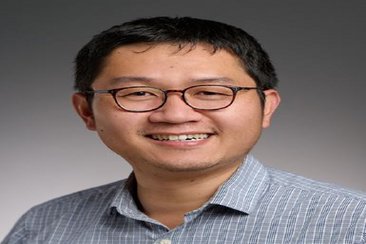
Guangbo (Bill) Chen
Medical College of Wisconsin
Host: Thomas Vogl
Programm
Rationale design of vaccine adjuvant informed by human cohort and organoid data
The antibody titer induced by a vaccine varies among humans. We hypothesize that certain cytokines' pre-vaccination (VAX) serum abundances may regulate the post-VAX response.
We pooled data (cytokine N=66) from 5 different flu vaccine cohorts in 5 seasons (sample N=664, received Inactivated Influenza Vaccine/IIV). In a group vulnerable to influenza infection (with low pre-VAX antibodies), the meta-analysis identifies a significant correlation between baseline/Day 0 serum IL18, CXCL1, and IFN-β concentration and the antibody response on Day 28. However, no correlation was found in the group with high pre-VAX antibodies.
Beyond correlation, we examined the vaccine-adjuvant functionality of cytokines in tonsil and spleen organoids derived from human subjects. A screen identifies numerous cytokines capable of adjuvating the inactivated vaccine, including multiple Type I IFNs (α,β,ω) and IL-21, but not IFN-r or its effector IL-18. Supplementing a single cytokine, IFN-β, can recapitulate the live vaccine-specific cytokine activation program and rescue the antibody induction deficiency of the inactivated vaccine. mRNA lipid nanoparticle is known to induce both type I IFNs and IL-21. In mice model vaccinated by human influenza strains, we found that non antigen-coding mRNA lipid nanoparticles can adjuvate heterologous antibody production to avian flu strains. IL-21 mRNA LNP further enhances the quantity and breadth of antibody responses. Thus, mRNA LNP can function as a programmable adjuvant.
About the speaker:
Guangbo (Bill) Chen, Ph.D. is an Assistant Professor at the Department of ObGyn and the Center for Immunology at the Medical College of Wisconsin. His research focuses on reconstituting immune responses using spleen tissue from transplant organ donors to inform vaccine and immunotherapy design. Dr. Chen trained at Stanford University and the Stowers Institute for Medical Research and has received multiple prestigious awards, including the Kaluza Prize and an LSRF Fellowship. His work has been featured in Nature, Cell, and PNAS, and he has presented at leading immunology and oncology conferences worldwide.
